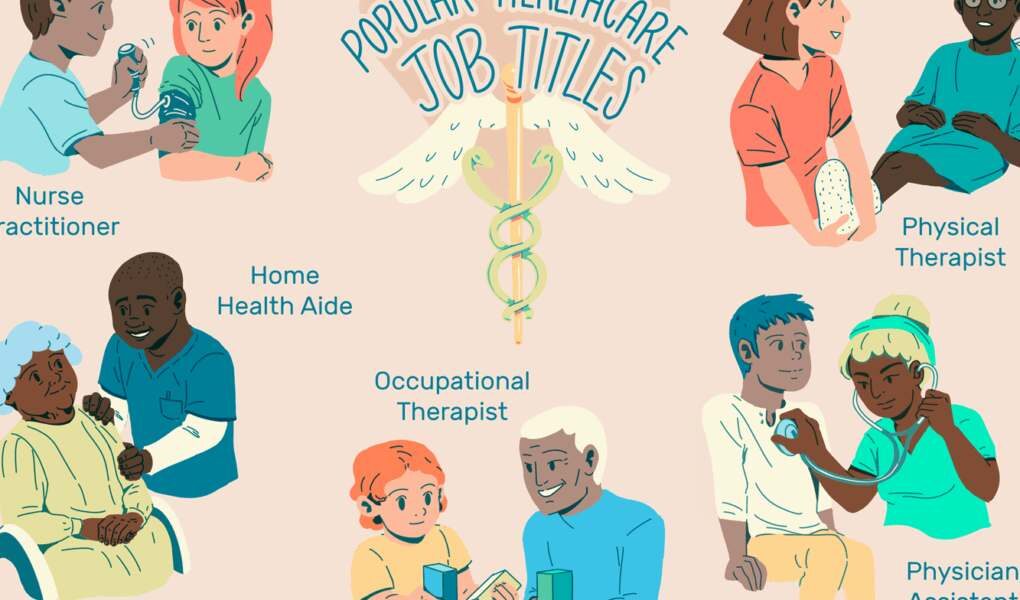Contents
As a healthcare provider, an enormous part of your job is working with patients. While you might know everything about your particular area of healthcare, it is not just knowledge that will ensure your patients are well cared for – it is also about how you speak, act, and present yourself. Without this, your quality of care suffers.
If you are an aspiring or current healthcare professional, read on to learn how to work well with patients.
Start with Education
Your first step is education. While the majority of your patient-care learning will be done in the field, it is important to understand all the relevant medical knowledge. That way, you will be able to provide your patients with the best care possible.
What degree you choose will depend on your career goals. If you are interested in human psychology, for example, you should consider a human services degree. It is a particularly helpful degree for working well with patients, as it goes into issues such as ethnic relations and human behavior.
Learn from Each Experience
One of the most effective ways of getting better with patients is learning from experience. You might come out of your healthcare degree believing you know what to do and say to get the best reaction, only to realize that each patient is individual and that different methods must be used for each person. By learning from experience, you will soon understand different types of body language and how to act in certain situations.
You might not know how to deal with an angry patient at first, but through trial and error, you will come to know what to say in those situations. The more experience you have, the better you will become.
Respect Everyone You Meet
One way to ensure you treat each patient the same is to respect them all. It is a crucial part of working as a medical professional, as more respect equals better treatment. Yes – that includes the difficult people. Just remember, everyone who is seeking treatment deserves to be there, and even the patients acting rudely have a story to tell. By showing respect to every person, you will gain more respect back (and more satisfied patients).
Open-Mindedness is Key
You cannot hold prejudices if you want to work in healthcare. After all, every single person (no matter their background) needs medical attention at one point or another, and you must treat everyone the same. You should stay open-minded with your practices, too. The chances are better methods will come about in the future. When this happens, you must be willing to alter your usual methods to make room for more efficient ones.
For more open-mindedness, a human services degree will help you there, as you will learn more about social issues in communities. This knowledge will prove valuable when working with patients.
Solve Problems Quickly
One of the biggest problems many healthcare patients have is that problems are not attended to quickly enough. Of course, this is not always the fault of the healthcare provider, as it depends on how busy they are. It is important, though, to ensure you solve all problems as quickly as you can in order to please the patient and make sure they are well cared for. If a patient has run out of water and is requesting more, for example, be sure to refill their cup as soon as possible.
Improve Your Sense of Humor
A sense of humor will help lift most situations. While some patients might want the simple facts (and you can often tell by observing their body language), some will feel more relaxed if you can laugh with them. This is especially helpful if you are giving treatment that is uncomfortable, as you can shift their attention from the treatment to a joke. If you can make an uncomfortable patient feel more relaxed in a healthcare environment, you are doing your job right.
Do not Expect Two People to Act the Same
What works for one patient will not always work for another. That joke you told that got lots of laughter with one patient? You might be met with a stale face if you tell it again. It is all about reading the room and picking up signs when it comes to understanding what your patients want. Most importantly, do not expect two people to act the same, as you will be sorely disappointed.
Use Simple Medical Language
While you might know all the psychology terminology from your human services degree, your patient does not. While it is crucial to relay factual information, it is also necessary to do so in a manner that the patient fully understands. That way, there will not be any confusion.
Ask About Their Lives
While your main priority is to provide your patients with the proper care and treatment, it is also helpful to connect with them on a more personal level. That does not mean asking questions that are far too personal (outside of medical necessity); it simply means showing an interest in who they are as people. This will help them feel more relaxed as well as make the whole situation much more enjoyable for the both of you. Some non-medical related questions you could ask your patients include:
- What Are Your Plans Once You Are All Better?
- Who Are You Going Home to?
- Have You Been Here Before?
- What Are Your Hobbies?
- What Shows Have You Been Watching?
Practice Listening
While, as a healthcare professional, you are the one with the medical information, your patient also has crucial information, such as the symptoms they are suffering with or how the treatment is affecting them. It is important to listen closely to everything your patient says. When the patient is talking, make the effort to maintain eye contact and listen to each fact closely. Not only will this make them feel better, but it will also ensure you do not miss anything of importance.
Act Confident
An unsure medical professional is the last thing any patient wants. Even if you are a student or you have recently graduated with your human services degree, you must have confidence in everything you do. Remember – you would not be giving treatment or tending to a patient if you were not qualified to do so, so you should do it with confidence!
Do Not Spread Yourself Too Thin
Spreading yourself too thin when tending to patients will have a negative effect on your quality of care, as you will not be able to spend enough time with each individual.
You might be used to spreading your time thin during your human services degree, but when it comes to a healthcare career, you must pay full attention to each patient. That means not taking on more than you can handle. If you feel you might be seeing too many patients at one time, consider talking to your manager or supervisor.
Remember Small Details
As a healthcare provider, you must remember the medical details of your patients. When talking to your patients, you are likely to take note of their symptoms, what medications they are on and what is bothering them.
It is important to remember details unrelated to their medical conditions too, though, as this will show them that you genuinely care about pay attention to them. For example, if a patient tells you about their dog, later ask them about its breed. Learning about psychology and communication will also help you get better at dealing with patients, and a human services degree is perfect for that.
Use Positive Body Language
It is not just the words you say that leave an impression on your patients – it is also the body language you use. Often, people do not realize the vibe they are giving off because of their body language. Without realizing it, you could be telling people you want to be anywhere but there while you are in their company! To keep your body language as positive as possible, you should:
- Avoid Crossing Arms
- Maintain Eye Contact
- Do not Fidget
- Turn Your Body Toward the Patient
Talk to Their Families
If your patient’s family members are present, it is a good idea to interact with them and ensure that they are well looked after, too. While they might not be receiving treatment, they might be worried about their family member or are simply unsure about where to go. By being respectful and kind to the family members as well as the patients, you ensure everyone leaves with a positive impression on both yourself and the healthcare facility.
Listen to Each Concern
Instead of focusing on just one concern a patient may have, do your best to listen to each one. After all, you never know when one symptom might turn out far more important than you first thought. Even if you believe a patient’s worry is nothing to worry about, by listening to it, you tell your patient that everything they say is being taken seriously.
Practice Patience
Patience is a must-have skill for all healthcare workers. Without it, you will not last long! Even if you have tons of patience, though, you will probably find that you lose it now and again, especially after a particularly long day. By constantly improving your patience, you will be able to fully focus on your patients and maintain emotional control.
Speak Confidently, Calmly, and Clearly
The way you speak to your patients matters – a lot. Speaking confidently means they will feel more assured, speaking calmly means they will feel more relaxed, and speaking clearly ensures they understand exactly what you are saying.
A human services degree is always great for learning about human psychology, but it can help you with your communications, too. To improve your education, consider pursuing education, gaining more experience, and practicing your speech in front of a mirror.
Look After Yourself First
It is tricky to look after patients if you are not first adequately looked after. Unless you are feeling great both physically and mentally, you are likely to feel irritable and moody during your working hours, which will affect your ability to help your patients. For this reason, you must prioritize these self-care essentials –
- Get Quality Sleep – A lack of sleep plagues far too many healthcare workers. Avoid looking like you do not care by ensuring you get at least seven to eight hours of quality sleep per night.
- Eat a Varied and Healthy Diet – How you feel reflects what you eat. If you eat lots of junk food, you will feel tired and groggy. If you eat a varied diet full of fresh, nutritious food, you will have enough energy to give your patients plenty of positivity and great care.
- Get Plenty of Exercises – Exercise is known to have a wide range of benefits, such as improving your physical health and mood. By fitting exercise into your day, you will enter work with a more positive attitude.
- Find a Hobby You Love – If your entire life revolves around your work, then you might start to feel sick of it. In turn, this could negatively impact the way you are with patients. To ensure you stay passionate about healthcare, find a hobby you also love outside of it.
- Take Plenty of Breaks – While you might have overworked yourself during your human services degree, it is essential to take plenty of breaks throughout your shift. By spending too much time with patients, you will inevitably feel overwhelmed and stressed, so take a breather and come back ready to provide excellent care.
- Get Enough Fresh Air – Many healthcare workers spend too long inside – especially those who work long shifts inside hospitals. You must avoid this, though, as fresh air is essential for good health. If you have not had a gulp of fresh air in a while, take a step outside and soak up the outdoors.
Whether you are doing a human services degree with the plan of becoming a counselor or you are already working as a full-time doctor, it is crucial to always get better with patients. That way, your patients will feel respected and understood.



